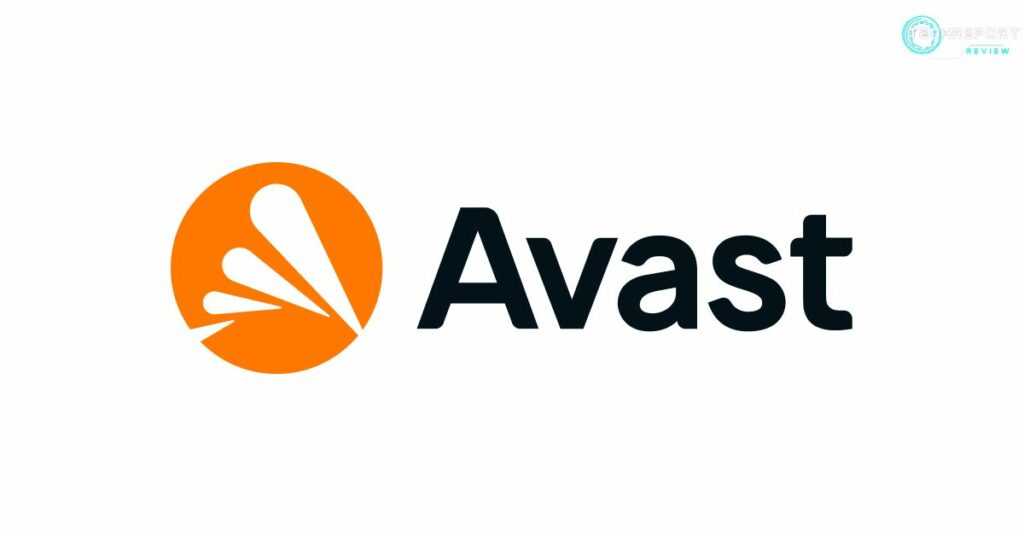Antivirus Battle Royale: Windows Defender vs Avast Free
Antivirus programs are software applications designed to protect computers, laptops, smartphones, and other electronic devices from malware infections, cyber-attacks, and other security threats. These programs use various methods such as signature-based detection, behavioral analysis, heuristics, and sandboxing to identify and remove malicious code from the system.
With the increasing frequency and complexity of cyber-attacks, it has become essential to have an effective antivirus program installed on your device. Choosing the right antivirus program can help to protect your personal data, prevent identity theft, and ensure the security of your online transactions. It can also help to improve the performance of your device by removing unwanted software and optimizing system resources.
This article aims to compare two popular antivirus programs, Windows Defender and Avast Free, and help you choose the one that best suits your needs. We will analyze the features, performance, user-friendliness, and other factors that can help you make an informed decision. By the end of this article, you should have a clear understanding of the strengths and weaknesses of each program and be able to choose the one that provides the best protection for your device.
What is Windows Defender?
Windows Defender is a free antivirus program developed by Microsoft, which is built into the Windows operating system. It provides real-time protection against malware, spyware, viruses, and other malicious software.
Windows Defender was first introduced in 2006 as an antispyware tool for Windows XP. Over time, it evolved into a full-fledged antivirus program that is now built into Windows 10. Microsoft has continually updated and improved Windows Defender, adding new features such as cloud-based protection, exploit protection, and more.
Windows Defender offers several features to protect against malware, including:
- Real-time protection: Windows Defender constantly monitors your computer for malware and other malicious software in real time.
- Cloud-based protection: Windows Defender uses cloud-based protection to quickly detect and respond to new and emerging threats.
- Exploit protection: Windows Defender protects against exploits that target vulnerabilities in software programs.
- Firewall: Windows Defender includes a built-in firewall to help protect your computer from network threats.
- Parental controls: Windows Defender offers parental controls to help you keep your children safe while using the computer.
There are several advantages of using Windows Defender over other antivirus programs, including:
- Free: Windows Defender is completely free and does not require any additional purchase or subscription.
- Integration: Windows Defender is seamlessly integrated into the Windows operating system, which means it doesn’t require any additional installation or setup.
- Low system impact: Windows Defender has a low system impact and does not slow down your computer as much as other antivirus programs.
- Regular updates: Windows Defender is regularly updated by Microsoft to ensure that it stays up-to-date with the latest threats and provides the best possible protection.
- Trusted source: As Windows Defender is developed by Microsoft, it is a trusted and reliable antivirus program that is backed by a large and reputable company.
What is Avast Free?

Avast Free is a free antivirus software developed by Avast Software s.r.o., a Czech-based cybersecurity company. It is designed to protect Windows computers against viruses, malware, spyware, and other online threats.
Avast Software s.r.o. was founded in 1988 by Pavel Baudiš and Eduard Kučera in Czechoslovakia (now the Czech Republic). Avast Free was first released in 1988 as a simple antivirus program called Avast! by Pavel Baudiš and Eduard Kučera. Over the years, Avast has grown into a comprehensive cybersecurity company that offers a wide range of security products, including Avast Free.
Avast Free comes with a range of features that are designed to protect your computer from online threats, including:
- Real-time protection: Avast Free offers real-time protection that monitors your computer and scans files as you access them to protect against viruses, malware, and other threats.
- Behavior Shield: Avast Free also includes a behavior shield that uses artificial intelligence and machine learning to detect and block suspicious behavior on your computer.
- CyberCapture: Avast Free’s CyberCapture feature is designed to automatically detect and isolate unknown files that may be potential threats.
- Wi-Fi Inspector: Avast Free includes a Wi-Fi Inspector feature that scans your Wi-Fi network to detect vulnerabilities and potential threats.
- Browser Cleanup: Avast Free also includes a Browser Cleanup feature that scans your web browser for unwanted extensions and toolbars that may be slowing down your computer or exposing you to online threats.
Some advantages of Avast Free over other antivirus programs include:
- Free: Avast Free is a free antivirus program, which makes it a good option for those who are looking for basic antivirus protection without paying for a premium service.
- User-friendly interface: Avast Free has a user-friendly interface that is easy to navigate, making it a good option for beginners.
- Comprehensive protection: Avast Free offers comprehensive protection against viruses, malware, spyware, and other online threats, making it a good option for those who want a complete antivirus solution.
Windows Defender versus Avast Free: Comparison of Protection
When it comes to antivirus programs, the most important factor to consider is the level of protection they offer. In this section, we will compare the protection features of Windows Defender and Avast Free to help you decide which one is better suited for your needs.
Windows Defender and Avast Free both offer protection against malware, which includes viruses, trojans, spyware, and other malicious software. Windows Defender uses a combination of signature-based detection, behavioral analysis, and machine learning to detect and remove malware. Avast Free uses a similar approach but also includes a feature called CyberCapture, which sends suspicious files to Avast’s cloud-based database for analysis.
Independent testing organizations such as AV-TEST and AV-Comparatives have conducted tests on both Windows Defender and Avast Free. In recent tests, Windows Defender scored a 100% detection rate for both known and unknown malware, while Avast Free scored slightly lower at 99.7%. However, Avast Free had a lower false-positive rate, which means it was less likely to flag legitimate programs as malware.
Phishing attacks are a common method used by hackers to steal sensitive information such as login credentials, credit card details, and personal data. Both Windows Defender and Avast Free offer protection against phishing attacks.
Windows Defender uses SmartScreen, a feature that checks URLs against a list of known phishing sites and warns you if you try to visit a suspicious site. Avast Free uses its CyberCapture feature to analyze the behavior of websites and warn you if it detects any phishing attempts.
In recent tests, both Windows Defender and Avast Free scored 100% in detecting phishing attacks, according to AV-TEST.
Firewalls are an essential component of any antivirus program as they provide an additional layer of protection against network attacks. Both Windows Defender and Avast Free offer firewall protection.
Windows Defender includes a built-in firewall that monitors incoming and outgoing network traffic and blocks any unauthorized access. Avast Free also includes a firewall that offers advanced settings to block specific applications or ports.
Independent tests have shown that both Windows Defender and Avast Free provide effective firewall protection.
Real-time protection is another important feature to consider when choosing an antivirus program. Real-time protection monitors your system in real time and scans all files and programs as they are accessed.
Windows Defender includes real-time protection that runs in the background and constantly monitors your system for any malware threats. Avast Free also includes real-time protection that offers several different levels of protection, including the ability to scan files as they are opened.
In tests conducted by AV-TEST and AV-Comparatives, both Windows Defender and Avast Free performed well in terms of real-time protection, with high detection rates and low false positives.
Overall, both Windows Defender and Avast Free offer strong protection against malware, phishing attacks, and network threats. However, in independent tests, Windows Defender has consistently scored higher in terms of detection rates, while Avast Free has a lower false-positive rate. Ultimately, the choice between the two will depend on your specific needs and preferences.
Windows Defender versus Avast Free: Comparison of Features
Antivirus software is essential in protecting your computer against malicious software and online threats. In this section, we’ll compare the features of Windows Defender and Avast Free.
Windows Defender is built-in software in Windows 10, which means it is easy to use and has a familiar interface for most Windows users. Its user interface is simple and easy to navigate. Avast Free, on the other hand, has a modern and sleek user interface that offers more customization options than Windows Defender. It offers different themes and color schemes that users can choose from.
Avast Free offers more features than Windows Defender. Avast Free includes additional features such as a password manager, a VPN, a software updater, and a game mode that allows you to play games without interruptions. On the other hand, Windows Defender offers basic features such as virus and threat protection, firewall, and network protection.
Avast Free offers more customization options than Windows Defender. Users can customize the scanning schedule, and scan type, and also set up a custom scan. Users can also exclude specific files and folders from the scan. Windows Defender, on the other hand, offers limited customization options.
Windows Defender is integrated into Windows 10, which means it is compatible with other Windows 10 software. Avast Free is also compatible with other software and has a low system impact. However, it may not be compatible with other antivirus software. It is important to note that running two antivirus software programs simultaneously can cause conflicts and may slow down your computer.
In conclusion, both Windows Defender and Avast Free have their own unique set of features. It ultimately depends on the user’s preferences and needs. If you’re looking for basic antivirus software with a familiar interface, Windows Defender may be the right choice for you. However, if you’re looking for additional features and customization options, Avast Free may be the better option.
Windows Defender versus Avast Free: Comparison of System Impact
When it comes to choosing an antivirus program, the system impact is an important factor to consider. In this section, we will compare the impact of Windows Defender and Avast Free on your system.
Resource usage is an important factor to consider when comparing the system impact of Windows Defender and Avast Free. Windows Defender is a built-in antivirus program that comes with Windows 10, so it uses fewer system resources than third-party antivirus programs like Avast Free. Avast Free, on the other hand, uses more system resources because it includes additional features and tools that are not available in Windows Defender.
Scanning speed is another important factor to consider when comparing the system impact of Windows Defender and Avast Free. Both programs offer quick and full system scans, but Avast Free may take longer to complete a full system scan due to its additional features and tools.
The impact of an antivirus program on your computer’s performance is a crucial factor to consider. Windows Defender is a lightweight antivirus program that does not impact your computer’s performance significantly. However, Avast Free may have a slightly higher impact on your computer’s performance due to its additional features and tools. However, the impact is usually negligible and not noticeable in most cases.
If you are using an older computer or hardware, you need to consider the compatibility of the antivirus program you choose. Windows Defender is designed to work with Windows 10 and is optimized to run on older hardware. However, Avast Free may have higher system requirements due to its additional features and tools. If you are using an older computer, you may need to check the system requirements before installing Avast Free.
In conclusion, when it comes to the system impact of Windows Defender versus Avast Free, Windows Defender has a lower impact on system resources, while Avast Free may have a slightly higher impact due to its additional features and tools. However, both programs are compatible with older hardware and have a negligible impact on computer performance.
Windows Defender versus Avast Free: Comparison of Payment and Reputation
When choosing an antivirus program, it is important to consider the cost and reputation of the software. In this section, we will compare the payment options and reputation of Windows Defender and Avast Free.
Windows Defender is a free antivirus program that comes pre-installed on Windows 10 devices. This means that users do not have to pay any additional fees to use the software. On the other hand, Avast Free offers a free version with basic features and a paid version with more advanced features. The cost of the paid version starts at $69.99 per year for one device.
Windows Defender has a good reputation for providing reliable protection against malware and other threats. It is developed by Microsoft, a well-known and respected company in the tech industry. Avast Free also has a good reputation and is a popular choice among users. However, Avast has been involved in controversy in the past regarding data collection and privacy concerns. The company has since made changes to its policies and practices to address these issues.
According to recent surveys, both Windows Defender and Avast Free have high levels of customer satisfaction. However, some users have reported issues with Avast Free, such as unwanted pop-ups and slow scans. Windows Defender is generally seen as a reliable and user-friendly antivirus program.
Both Windows Defender and Avast Free offer support and assistance to users who encounter issues with the software. Windows Defender users can access the Microsoft Support website, which provides a range of troubleshooting guides and resources. Avast Free users can contact the company’s customer support team via email or phone, or access the support section of the Avast website.
Overall, both Windows Defender and Avast Free are reputable and effective antivirus programs. Windows Defender is a good option for users who want a free, reliable antivirus program that is easy to use. Avast Free is a good option for users who want more advanced features and are willing to pay for them. Ultimately, the choice between the two programs will depend on the user’s individual needs and preferences.
Windows Defender versus Avast Free: Updates and Maintenance
Keeping an antivirus program up-to-date is crucial for ensuring the best protection against constantly evolving malware and security threats. In this section, we’ll compare the updates and maintenance features of Windows Defender and Avast Free.
Both Windows Defender and Avast Free receive regular updates to improve their functionality and protect against new and emerging threats. Windows Defender is updated regularly as part of the Windows update process, which usually happens automatically in the background. On the other hand, Avast Free provides daily virus definition updates and program updates, which are downloaded automatically.
The quality of updates is also important, as poorly tested or buggy updates can cause problems for users. Both Windows Defender and Avast Free are known for providing high-quality updates. However, some users have reported issues with Windows Defender updates causing problems with their systems.
Maintaining an antivirus program can be a tedious task, especially for users with little technical expertise. Both Windows Defender and Avast Free offer easy-to-use interfaces and automated maintenance features, making it simple for users to keep their systems protected. Windows Defender is integrated with the Windows Security Center, allowing users to easily manage their antivirus and other security settings. Avast Free provides a dashboard that offers a range of features, including scheduled scans, real-time protection, and access to advanced settings.
Finally, it’s important to consider the level of support and assistance offered by both antivirus programs. Windows Defender offers support through the Microsoft website and community forums, as well as phone and chat support for those with a paid subscription to Windows. Avast Free provides a similar range of support options, including a comprehensive knowledge base, community forums, and paid phone and chat support.
Overall, both Windows Defender and Avast Free provide frequent updates and easy maintenance features. The quality of updates and level of support and assistance are also generally high for both programs, making it easy for users to keep their systems protected.
In Crux
In this article, we have compared Windows Defender and Avast Free, two popular antivirus programs. We have looked at their history, development, features, advantages, protection, features, system impact, payment, reputation, updates, and maintenance.
After comparing the two programs, we believe that both Windows Defender and Avast Free are effective at protecting against malware. With each having their own unique strengths and weaknesses. Windows Defender is the default antivirus program for Windows, offering reliable protection and minimal impact on system performance. On the other hand, Avast Free offers additional features such as a password manager and network scanner. As well as better customization options.
Ultimately, the choice between the two will depend on the specific needs and preferences of the user. For those who want a simple and reliable antivirus program with no additional frills, Windows Defender may be the best option. However, for those who want more advanced features and customization options, Avast Free may be the better choice.
As the digital world continues to evolve, the threat of cyberattacks and malware is likely to increase. Antivirus technology will need to adapt to keep up with new threats. And we may see new features and capabilities added to antivirus programs in the future. Additionally, with the rise of artificial intelligence and machine learning. We may see more sophisticated methods of detecting and preventing malware.
How much did you like Our detailed Antivirus Battle Royale: Windows Defender vs Avast Free? Review Also, please share these Blogs with your friends on social media.
Related Blogs
[WPSM_AC id=1046]
























